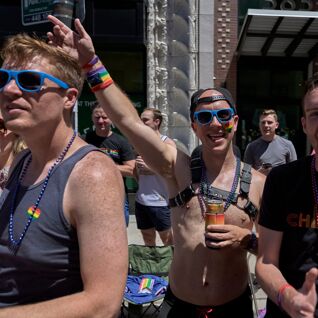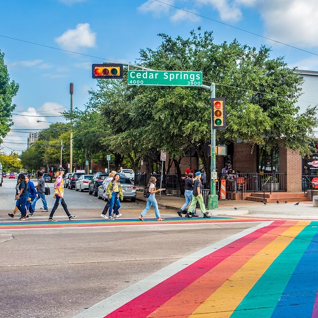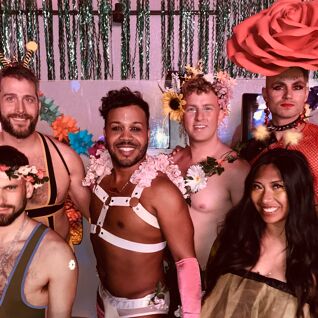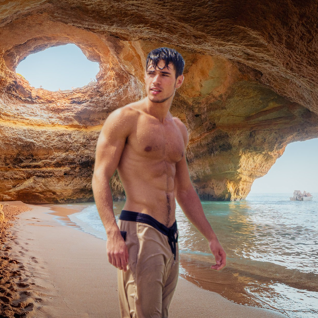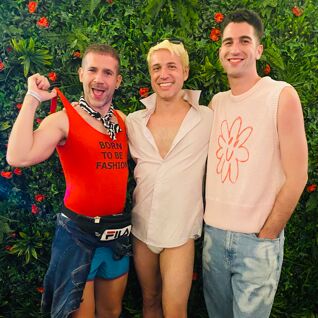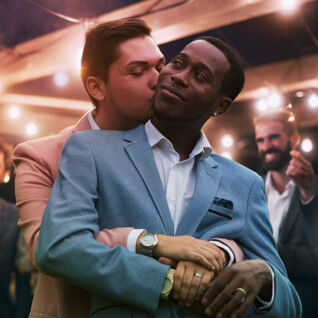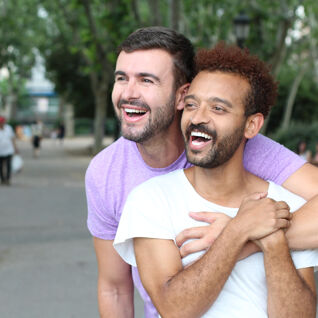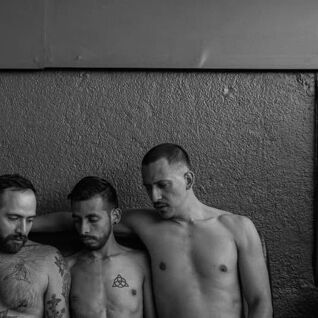
Did you watch Eurovision 2019 this past weekend? If you live in North America, the answer is most likely “no.”
The world’s largest music event (last count was 180 million viewers worldwide) is not broadcast here. The only possibility would have been, finding a TV station—somewhere on Earth—that live-streamed the show on their Web site, and then using a VPN to watch it. Although who would do such a thing? That’s illegal.
For anyone law-abiding and therefore uninitiated, let’s cover some basic info: Eurovision is an annual “song contest” between many countries around the world, mostly in Europe but we’ll clarify that later, who choose a musical act to perform an original song, and viewers call/text to vote for their favorite performances. Seems simple, right? Wrong. There are lots of rules—for example, viewers cannot vote for their own country—and a complex system of points is awarded by viewer “televotes” and a separate jury of judges.
The televoting gets heated as countries vote for their political allies, yet ignore contestants who represent enemy states. For example, the UK ended up dead-last in the 2019 competition, even though the song was a catchy pop tune and their singer did a good job. But when you vote to Brexit your way out of the European Union, you may find the rest of Europe does not like you very much. No points for you!
To participate, countries must be part of the European Broadcasting Union (EBU), which is a public TV organization that broadcasts in many parts of the world. Australia competes, Azerbaijan competes, Morocco had competed in the past but they threw a temper tantrum in 1980 about something and haven’t been back since. Israel won Eurovision in 2018, with an earworm of a dance song called “Toy,” and that meant they received the honor/burden of hosting the next contest, so Eurovision 2019 was in Tel Aviv. “Toy” was such a big hit, it even reached #1 on the US dance charts. Please click that link and play that video. You’re welcome.
Related: Pride Takes Over Tel Aviv And It’s A Feast For The Eyes
For 2019, The Netherlands won with a pleasant ballad, “Arcade,” which is a nice if unremarkable song. But it doesn’t matter. Beause the real thrill of Eurovision has always been the spectacle of the competition, as artists vie for votes by engaging in on-stage antics and ridiculous choreography, with special effects worthy of a Las Vegas stage.
The campiness of it all has amassed legions of gay fans, and the show has become the most fabulous, most LGBTQ-inclusive program to happen anywhere on Earth, with contestants singing about Pride and dancing with shirtless male backup dancers, and occasionally engaging in a same-sex smooch. Austria’s contestant in 2014, Thomas Neuwirth, caused a bit of a kerfuffle when he won Eurovision while dressed as his gender-fluid drag alter ego, Conchita Wurst (photo, top). This was no publicity stunt. Conchita Wurst is a legitimate pop star in Austria, and thanks to her Eurovision fame she is a leading advocate for LGBTQ rights around the world.
Related: Finnish Lesbian Kiss Creates Eurovision Broadcasting Brouhaha
Due to nasty international licensing rights, finding full performances of the Eurovision finals is difficult. But here are clips from the Top 5 most notable moments. Because it is a show that must be seen to be believed.
1. Australia
🇦🇺 WOWWW! What a show from Kate Miller-Heidke! We can confirm she is now safely back on solid ground!@SBS @SBSEurovision @KMillerHeidke#DareToDream #Eurovision #AUS pic.twitter.com/ouC6SgqFWr
— Eurovision Song Contest (@Eurovision) May 18, 2019
Kate Miller sang the lovely opera-pop song “Zero Gravity” while bouncing around like a lawn ornament blowing in the wind. Australia placed 9th, which is a very good result. Well done Kate.
2. Norway
Norway won the popular vote for 2019 with the song “Spirit in the Sky” by the musical group KEiiNO. But they placed only 5th overall, due to a lousy response from the jury panel, which of course was a big scandal.
At first listen, “Spirit In The Sky” is a catchy dance pop track, but please note the gentleman in the leather pants. That is Fred Buljo, one of Scandinavia’s most esteemed hip hop artists, and he is singing in his native language of the Sámi people, a nation of nomadic herders who live in the Arctic and raise reindeer. Sámi chanting is cool. And we’ll presume those leather pants are made from an animal that he hunted himself.
3. Conchita Wurst returns
The incredible @ConchitaWurst singing @MansZelmerlow's Heroes! What a mashup!#DareToDream #Eurovision pic.twitter.com/mNUTVCbjZK
— Eurovision Song Contest (@Eurovision) May 18, 2019
Conchita was not the only drag persona of the evening: France’s singer for 2019, Bilal Hassani, dressed in drag to sing the song “Roi,” about loving yourself while facing discrimination. It was a great message, but a mediocre performance, which placed France at only 14th.
4. Spain
MIKI LIVING LA VIDA, LA VENDA! #Spain #Eurovision pic.twitter.com/bLuYRdIBSU
— BBC Eurovision (@bbceurovision) May 18, 2019
This is exhausting to watch. But we’re not done! Here’s another clip:
🇪🇸 Spain's Miki closes the show with a party on stage, and we're still clapping along!@RTVE @Eurovision_TVE @Mikiot2018#DareToDream #Eurovision #ESP pic.twitter.com/rzTB5jmjV0
— Eurovision Song Contest (@Eurovision) May 18, 2019
Is this a song, or an anthem before a soccer game? Spain placed 22nd, which is not great, but at least he sang his song in the correct key. Unfortunately, not everybody who performed was able to say the same.
5. Special Guest Madonna
Tremble Khaleesi 🔥 @Madonna et @QuavoStuntin viennent prendre le Trône de Fer on dirait…#Eurovision #GameOfThrones
👉 La suite de leur performance sur https://t.co/hbLxAmmRIW : https://t.co/qGf5qWqlsM pic.twitter.com/u2kMSQXF5M
— Eurovision France 🇫🇷 (@EurovisionF2) May 18, 2019
As a special treat to the viewers, Madonna was paid $1 million to perform at Eurovision’s live final broadcast. But in a pre-performance interview, her voice sounded hoarse, foreshadowing the sadness to come. Unfortunately when you’re paid $1 million to do a show, the show must go on. Listen to what happened as she sang “Like a Prayer.”
It got better with her second song…thank God for Autotune.
Related: France Gives You Nearly Nude Hot Military Dudes (i.e., A Reason To Care About Eurovision)







